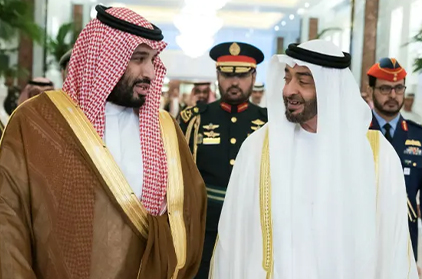
Joe Biden’s hardline stance on Russia has won him widespread plaudits, but with the most serious oil shock in decades now a reality, the US president’s attempt to cushion the blowback continues to meet resistance from the two allies he needs most.
Saudi Arabia’s de facto leader, Mohammed bin Salman, and his counterpart in the United Arab Emirates, Mohammed bin Zayed, are yet to agree to a phone call with the west’s most powerful man – a scenario all but unthinkable during previous administrations.
Biden’s immediate priority is for both countries to help exert maximum economic pressure on Russia by cranking up their oil output. Each capital is a major supplier of oil, with excess capacity, which would soften the effect on US consumers through fuel prices before midterm elections in November that threaten Democratic control of Congress.
With relations between the Middle East oil powers and Washington at their lowest ebb in modern times, though, a reckoning is due that may realign the regional order on terms that favour Riyadh and Abu Dhabi. Both leaders have made it clear that they will settle for nothing less, and are ready to extract their price.
As if to show the Biden administration what it could do, the UAE ambassador to Washington, Yousef al-Otaiba, last Wednesday said it favoured production increases “and will be encouraging Opec to consider higher production levels”, leading oil prices to fall by 13% the next day. But no action to increase supply followed and by the week’s end the price per barrel was back up to almost $130 (£100), an uncomfortably high level for Biden to take to the midterms.
However, the standoff involves far more than oil. In Riyadh, Prince Mohammed feels snubbed by Biden’s refusal to engage with him ever since he took office. The murder of the Saudi dissident Jamal Khashoggi by the crown prince’s security aides, the war on Yemen, the jailing of rights activists and the boycott of Qatar have made him a pariah to the administration.